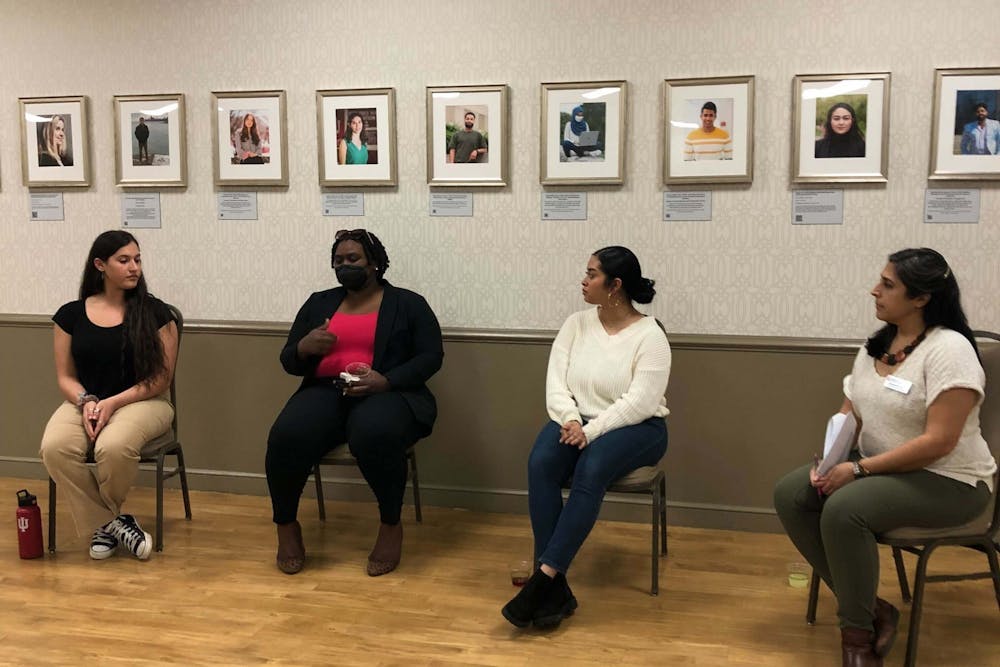The IUSG student life committee, along with IU Women and Co. held a women’s leadership conference Wednesday in the IMU Georgian Room.
This event was put together by Iandra Diaz Scheker, the IUSG student life committee director. She said the event was to help promote the voices of women in leadership roles at IU and in society as a whole.
“It feels like women are invisible here at IU, especially if they belong to marginalized communities,” Scheker said. “This event was created to highlight our struggles and journeys.”
The panel consisted of IU Hillel President Zeevie Drizin, CAPS counselor Luciana Guardini, Maqubé Reese, the Assistant Director of Diversity Initiatives at Kelley, and Evelyn Sanchez, a co-president for IU Latinos Unidos and National Association of Hispanic Journalists.
Topics of discussion included the mental health of women in leadership, inclusivity and the competition mentality which exists amongst women.
“This discussion is set to create a safe space for diverse women who are often seen as being strong individuals,” Scheker said.
The panel went into great detail about how important it is to work with other women and learn how to heal together from the struggles most commonly felt among them.
During the Q&A portion, the panelists were each asked a question about how diverse their environments and working spaces are. They collectively agreed the spaces at IU could certainly be more diverse.
“It comes to a point where we have to decide if we will be able to show up as our whole selves,” Reese said. “We often have to think about what it means to be you.”
In terms of understanding the issues these women face, exposure to various communities and backgrounds seemed to stick out a great deal.
“When you are exposed to different communities, you are able to think in more diverse ways and the world would be a better place,” Guardini said.
The panelists also had a brief discussion on impostor syndrome, feelings of self-doubt, and how it is a common issue amongst women in leadership positions.
Impostor syndrome is more common in women, especially women of color, in leadership positions because of the lack of knowledge around how societal systems impact one's frame of mind, Reese said.
“We are allowed to be vulnerable and experience uncertainties within life,” Scheker said. “Being vulnerable is a good thing."






